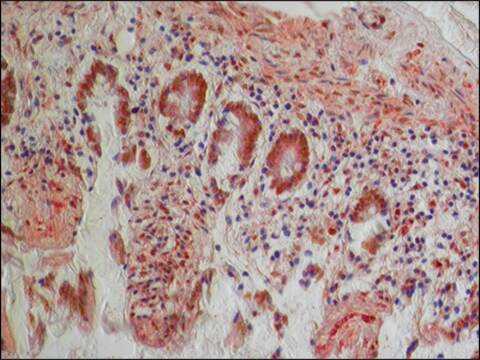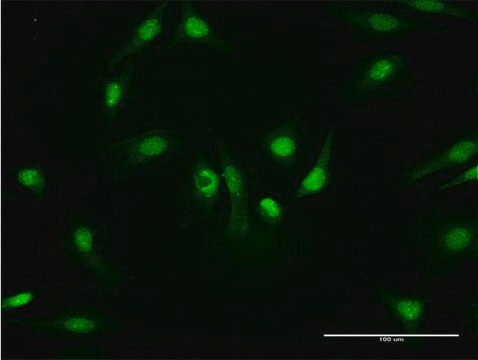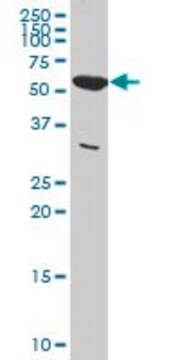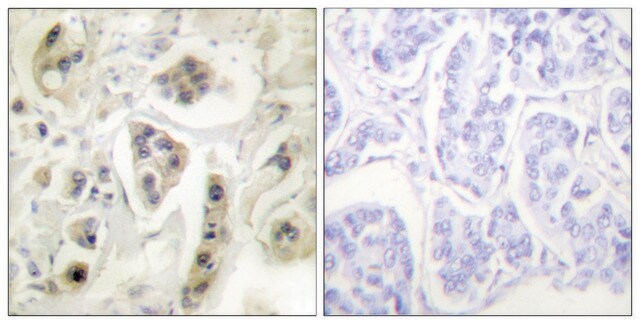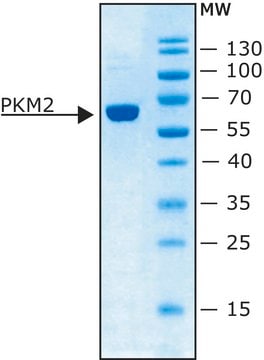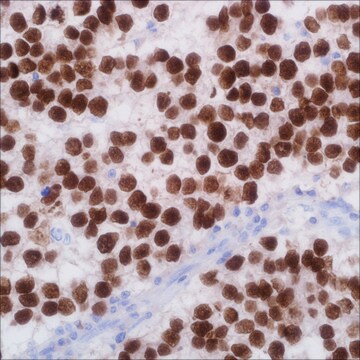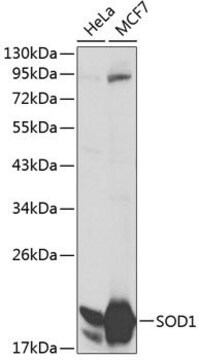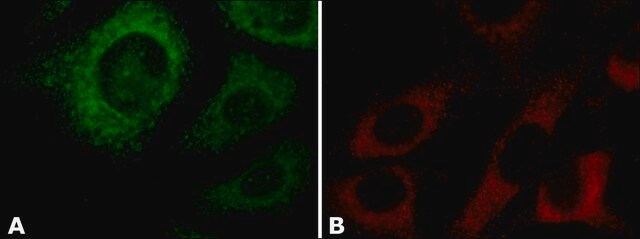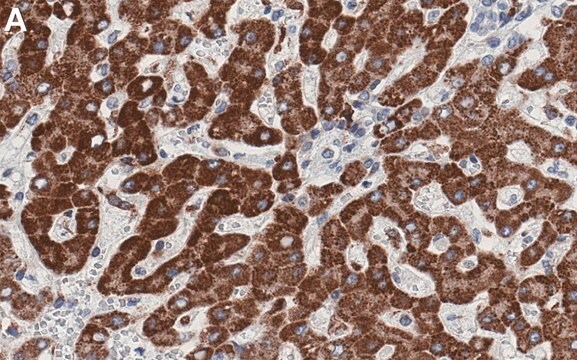SAB4200095
Anti-PKM2 (isoform M2) antibody produced in rabbit
~1.5 mg/mL, affinity isolated antibody
Sinonimo/i:
Anti-CTHBP, Anti-OIP3(OPA-interacting protein 3), Anti-PK3, Anti-PKM, Anti-Pyruvate Kinase, MUSCLE (isoform M1), Anti-TCB, Anti-THBP1 (thyroid hormone-binding protein, cytosolic)
About This Item
Prodotti consigliati
Origine biologica
rabbit
Coniugato
unconjugated
Forma dell’anticorpo
affinity isolated antibody
Tipo di anticorpo
primary antibodies
Clone
polyclonal
Stato
buffered aqueous solution
PM
antigen ~60 kDa
Reattività contro le specie
human
Concentrazione
~1.5 mg/mL
tecniche
immunohistochemistry: 10-20 μg/mL using formalin-fixed paraffin embedded human colon carcinoma
immunoprecipitation (IP): 2-4 μg using HT29 cell lysates
indirect immunofluorescence: 4-8 μg/mL using HeLa cells
western blot: 0.5-1.0 μg/mL using HeLa cell extracts
Condizioni di spedizione
dry ice
Temperatura di conservazione
−20°C
modifica post-traduzionali bersaglio
unmodified
Informazioni sul gene
human ... PKM2(5315)
Descrizione generale
Specificità
Applicazioni
- chromatin immunoprecipitation (chip) assay
- western blotting
- immunofluorescence
- immunohistochemistry
Azioni biochim/fisiol
Stato fisico
Esclusione di responsabilità
Non trovi il prodotto giusto?
Prova il nostro Motore di ricerca dei prodotti.
Codice della classe di stoccaggio
10 - Combustible liquids
Punto d’infiammabilità (°F)
Not applicable
Punto d’infiammabilità (°C)
Not applicable
Scegli una delle versioni più recenti:
Certificati d'analisi (COA)
Non trovi la versione di tuo interesse?
Se hai bisogno di una versione specifica, puoi cercare il certificato tramite il numero di lotto.
Possiedi già questo prodotto?
I documenti relativi ai prodotti acquistati recentemente sono disponibili nell’Archivio dei documenti.
Articoli
We presents an article about the Warburg effect, and how it is the enhanced conversion of glucose to lactate observed in tumor cells, even in the presence of normal levels of oxygen. Otto Heinrich Warburg demonstrated in 1924 that cancer cells show an increased dependence on glycolysis to meet their energy needs, regardless of whether they were well-oxygenated or not.
Il team dei nostri ricercatori vanta grande esperienza in tutte le aree della ricerca quali Life Science, scienza dei materiali, sintesi chimica, cromatografia, discipline analitiche, ecc..
Contatta l'Assistenza Tecnica.